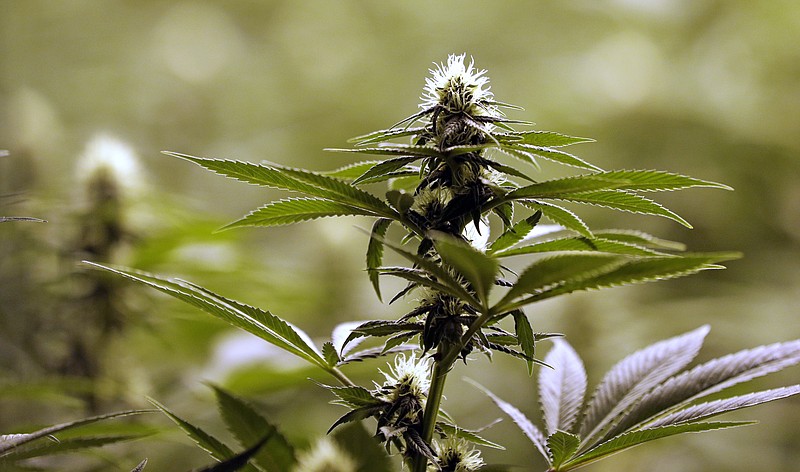Dylan sang that everybody must get stoned.
What if we already are?
Marijuana has become the most legal of all the illegal drugs. Whatever stigma it once carried is long gone. In some circles, pot is considered less taboo than tobacco.
It is suburban, rural and urban. Each of us is probably one or two phone calls away from a bag of marijuana. Three at most. Either you know somebody, or somebody you know does.
Ask a high schooler - 81 percent of seniors said pot was easy to get. (Compared to 37 percent of eighth-graders). These figures come from the National Institute on Drug Abuse, which also reports that teens are more likely to smoke pot than cigarettes, which sounds like good news at first, then doesn't.
So the bluster of political talk over legalization seems to be more of a non-issue than a controversy, especially since more Americans - 51 percent, according to Gallup - are for it than against it.
In Georgia, lawmakers are considering legalizing medical marijuana, or cannabis oil, which would be an act of compassion for the families whose children suffer from heartbreaking and debilitating seizures. To not pass such legislation is akin to cruelty.
But should Georgia then legalize recreational pot?
Should Alabama? Should Tennessee?
No, they shouldn't.
We are already high enough.
The problem I have with legal marijuana is less with the drug itself and more with the context into which it would be legalized. In America, the last thing we need is another drug.
We need fewer altered minds, not more.
We Americans are 5 percent of the world's population, yet we consume 75 percent of the world's prescription drugs. We over-drink and over-eat. Nearly 10 percent of the population has used illicit drugs in the past month. Again, this comes from the National Institute on Drug Abuse, which also reported that one in three American men binge drink. From meth to Marlboros, it is possible we lead the world in addiction.
"Americans are more likely to try illegal drugs than anyone else in the world," writes the author and neuroscience journalist Maia Szalavitz in Substance.com.
I do not write this lightly, or prudishly. From morning to evening, I usually have one thing or another in my system - coffee, sugar, alcohol - each serving a similar purpose: to make life just a little more feel-good, a little easier to bear.
That is the real issue facing America: How do we make peace with the reality of our lives?
Once, I traveled to Amsterdam, where pot use is legal. One of the first places we visited was the Anne Frank House, the secret attic home to the Frank family before the Nazis stole them away to the death camps.
Around us in line, people were lighting joints. It was the weirdest of contradictions: getting high outside one of the most sober, somber places in the world.
Are there some realities too difficult for us to face? It seemed so horribly disrespectful: to escape through pot our own discomforts as we enter the attic of a family for whom escape was the one thing they could never have.
One day, will we light up outside the Vietnam Memorial? Or as we wait in line to visit the White House? Or Arlington?
Again, I do not say this casually. For some of us, sobriety is the most difficult work of all, yet also the most counter-cultural. How many billions would corporations stand to lose if we all sobered up, lickety split? Our best interest is not theirs.
So we should not forget: Legalizing pot is a false freedom. Real liberation comes when we discover how to free ourselves from the anxiety, fear and anger that drive us into addiction and substance abuse in the first place.
Clarity should be our goal, not another way to get high.
Contact David Cook at dcook@timesfreepress.com or 423-757-6329. Follow him on Facebook or Twitter at DavidCookTFP.

